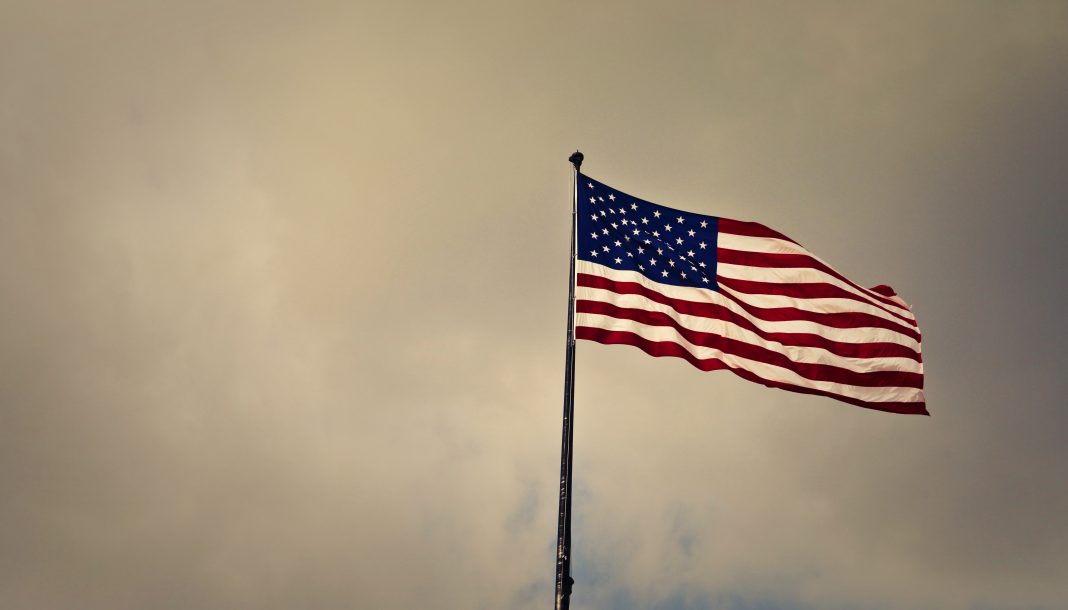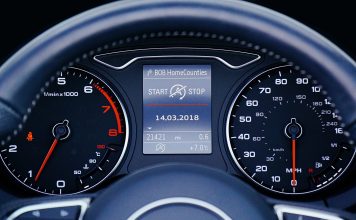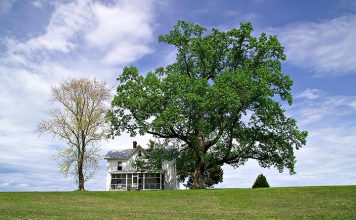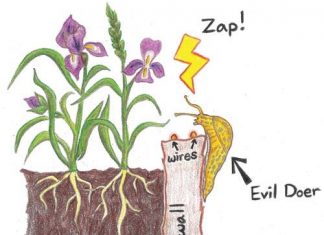|
By Claire Wolfe
|
|
| Issue #149 • September/October, 2014 |
The world is becoming less free. In the Middle East and Africa, Islamist fanatics try to bring back the Dark Ages. Europe stagnates under new layers of regulation imposed by the EU. In the United States, a president who disdains the messy art of political deal-making increasingly seeks to rule by executive order and bureaucratic fiat.
Think tanks from every part of the political spectrum agree that freedom is falling nearly everywhere. They release annual reports charting alarming declines. Democracy-promoting (and government-funded) Freedom House notes that freedom of the press is at a 10-year worldwide low. On the economic front, the conservative Heritage Foundation reports that the global growth of freedom has “ground to a halt” since 2008 after growing healthily for the previous 12 years.
While many of the worst losses for every type of freedom have been in Africa and the Middle East (where they didn’t have much to begin with), the U.S. is not immune.
When it comes to press freedom, Reporters Without Borders recently dropped the U.S. from 33rd place to 46th due to the Obama administration’s crackdown on whistleblowers, its monitoring of reporters’ phone and email activities, and its eagerness to revive a seldom-used WWI-era espionage act to intimidate those who reveal government wrongdoing.
In economic freedoms, the most the U.S. can now say is, “We’re #12!” Our rankings on the Heritage reports have been steadily falling. In 2013 we were in the top 10 and rated as “Free.” Now we are rated “Mostly Free” and sit between Estonia (#11) and Bahrain (#13) on the charts. Furthermore, we are the only country in the world to record a loss of economic freedom in each of the last seven years.
Could be worse, though. In another index published in the U.S. by the Cato Institute, the U.S. ranks 17th in economic freedom. Between 1980 and 2000, the U.S. consistently ranked third, behind only Hong Kong and Singapore. We’ve plunged while our two previous rivals have held their places.
Of course, few of us would want to take up residence in Estonia or Mauritius, let alone Bahrain or the highly authoritarian Singapore. Economic freedoms are only part of the picture.
In 2013, Canada’s Fraser Institute, Germany’s Liberales Institut, and the Cato Institute tried to paint a bigger picture. They made the first attempt at publishing an overall index of freedom from a classical liberal (libertarian) standpoint, including both economics and civil liberties. There, the U.S. can proudly claim, “We’re #7!”
Yet wherever we rank on various indices, and whichever way we’re trending, we Americans still see patches of sunny blue sky in our otherwise dismal freedom forecast.
Gun rights

In the last 20 years there’s no question at all: Americans have maintained and expanded our right to self defense. Even in the dark days of 1993 and 1994 when the Brady Law and the so-called Assault Weapons Ban were foisted upon us, state-level activists were hard at work and making progress! on winning shall-issue concealed-carry firearms laws. I didn’t support these efforts because governments have no business giving us “permission” to defend ourselves and should not have records of who owns and carries guns; but those activists did an impressive job helping to normalize firearms in daily life and reduce violent crime.
Later, miracle of miracles, several states even adopted constitutional carry (carry, open or concealed, without permits).
In the last 20 years, the Assault Weapons Ban sunsetted and was not renewed. We saw the Heller and McDonald Supreme Court victories that confirmed that the Second Amendment does, in fact, protect an individual right (which we knew, but others had to be reminded). A whole new demographic young women is moving into gun ownership and the shooting sports at an astounding pace. For all the anti-gun, “zero-tolerance” propaganda that’s been blasted at them during their school careers, young people overwhelmingly say that they want to own guns.
Even after the tragedy of Sandy Hook, gun-rights activists were able to prevent new nationwide laws that would have (once again) put peaceable gun owners at risk while doing nothing to stop criminals and madmen. A handful of blue states (and one purple state, Colorado) did pass punitive laws only to find themselves facing rebellion. Gun owners in the affected states refused en masse to register their “assault weapons.” Firearms-related companies moved out of state entirely or decided to open new plants in friendlier territory. Gun-banning legislators faced grassroots recalls. Even the wealth of America’s Hoplophobe-in-Chief, Michael Bloomberg, could not win the day for those who want to render us defenseless.
Yes, we still have to be vigilant. Bloomberg’s millions are being devoted even more heavily to victim disarmament now that he’s no longer mayor of New York City. Obama has already used executive orders to further curtail imports of firearms and related products. And there’s always a chance that public opinion could swing back in favor of disarming us. But for now, the U.S. can proclaim, “We’re #1!” when it comes to the freedom to defend innocent lives and oppose would-be tyrants.
The homeschooling movement

In 1979, a man named John Singer was shot to death by police. He was not a very nice person and was a thorn in the side of both Utah state authorities and the LDS church for his politically incorrect views and uncommon lifestyle. Perhaps he’d have ended up in a fatal confrontation over some other issue. But the issue that did drive him to death was of all things homeschooling.
Back then, homeschooling was an idea that most people found shocking and outrageous. Today? Ho hum. While the numbers can be slippery, roughly 4 percent of American children are now homeschooled. That’s up from 1.7 percent in 1999. It’s up from nearly zero from the not-so-distant day when the act of homeschooling was enough to cost a man custody of his children and his life.
Although historically most education has been home-based, by the Twentieth century, compulsory school-attendance laws had a firm hold on the Land of the Free. The idea that families (or private tutors or informal groups or life experience) might provide an excellent way to learn was considered nutty. Starting about 1960 and into the 1980s, people like John Holt and Raymond and Dorothy Moore began to challenge the assumptions behind compulsory government schooling. It took time to build an intellectual case and more time to win legal concessions and public acceptance, but gradually groups like the Home School Legal Defense Association and an increasing number of homeschool curriculum builders began to win back the freedom of families to educate their own. The Internet helped, too, by making home learning easier and building networks of homeschoolers.
The latest figures show that homeschooling is growing about seven times faster than government-school enrollment. Not only that, but a 2012 article from Education News notes:
Homeschooling statistics show that those who are independently educated typically score between the 65th and 89th percentile on [standardized assessment] exams, while those attending traditional schools average on the 50th percentile. Furthermore, the achievement gaps, long plaguing school systems around the country, aren’t present in the homeschooling environment. There’s no difference in achievement between sexes, income levels, or race/ethnicity.
The increasing freedom to homeschool breeds and feeds other freedoms. Although the quality and nature of the education naturally varies from family to family, homeschooled individuals tend to be thinkers, achievers, questioners, and doers. In general, they’re raised with less government propaganda and without nonsense like zero-tolerance policies. As homeschooled individuals become the leaders of the next generation, we can expect to see many of them questioning authority, pioneering new technologies, envisioning new ways to do things, and refusing to accept artificially imposed limitations on freedom.
Information technology

We’ve had endless unpleasant shocks about the Internet, smartphones, and other infotech lately. The NSA is collecting our emails. Databrokers are selling our electronic health information to marketers and researchers. Facebook is conducting covert psychological experiments on its users. Virtually every big tech company and phone service provider has shared our data with governments. Department stores are tracking our movements via our smartphones. Worse, we probably haven’t even scratched the surface of the ways we’re being used and abused by technology and those who control it.
This is all totally anti-freedom. The potential for totalitarian and corporatist control over our lives is grotesque beyond imagining. But our fears may make us lose sight of how electronic communications have revolutionized our lives in amazingly positive ways. The Net hasn’t just given us way to look at weird cat pictures, buy stuff, and “like” our grandkids’ photos. In the last 20 years or so it’s given us the means to route around censorship, to get the raw data behind “approved” news stories and scientific studies, and to hear contrary opinions. It’s let us know that we are not alone in our views or our fears. It’s given us quick ways to mobilize people into action for everything from political rallies to emergency evacuations. It’s given us access to a world of data to help us take care of our own health. In short, it’s given us a degree of control over our lives, our relationships, and our information that is absolutely unprecedented in human history.
There are now fears that NSA and other forces have “broken the Internet” by subverting its trustworthiness and using all e-communications as a spy tool. Those fears are valid.
But we must also never forget that, now that we have some inkling of what’s being done to us, we (and the IT wizards in our midst) can counter the snoopery with better tech and stronger freedom protections. One example: As I write this, a new smartphone, the Blackphone, is hitting the market. Developed by, among others, encryption-for-the-masses pioneer Phil Zimmerman, the Blackphone comes with multiple privacy safeguards built in.
A super-private email service called ProtonMail is also now in play, developed by scientists at MIT and CERN. ProtonMail features something that’s been needed for a long, long time easy, reliable encryption and other privacy protections. It’s a sad sign of the times that ProtonMail has to be based in Switzerland rather than the U.S. (because no company offering an electronic privacy service would place itself under the jurisdiction of the world’s most fearsome surveillance state). But its very existence is a great sign of the possibilities to come, particularly given the excellent minds who are working on these problems.
Now, you may not care about these particular products. You may be like me and not have a smartphone. You might not even use a computer. But the great thing about developments like these is that they aim to strengthen individual freedom in response to governmental and corporate attacks on freedom. The nimbleness of creative individuals will outfox institutional freedom stealers at every turn.
And that’s not all
There are actually many freedom sunbreaks in the otherwise gloomy climate for freedom. While the traditional political freedoms are imperiled, people are using their own creativity and technology to better their lives and change the world.
I consider the locavore movement and the related drive toward better, more natural foods to be among these sunbreaks. “Foodies” and healthy food providers may be all over the political spectrum. The guy who raises the grass-fed beef may have very little philosophy in common with the woman who runs the tiny organic co-op out of the back room of a big-city church. But together they and the artisanal cheese makers and the non-GMO grain growers and the community-supported small farmers are in it together. What they’re in is a revolution not only in food production and distribution, but also in human ingenuity and self-determination. And that’s the core of freedom.
People are not only trading with each other at the local and regional level, bypassing huge government-subsidized corporations like Monsanto and Cargill. They’re using technology (websites like Earthineer.com and LocalHarvest.com) to create new distribution systems and new communities. They’re doing their own research to improve their own health. They’re creating new markets and new types of careers.
Is the locavore movement going to rid the world of the sugary, chemical-laden, plastic-wrapped, highly profitable pseudo-foods of Big Ag? Probably not. But it’s giving more people more choices. And that is the core of freedom, too.
Another thing I consider a sunbreak is the growing cynicism and distrust toward government and all large institutions, from the mainstream media to Big Pharma and the increasingly centralized health-care industry. Many would disagree with me there. They look back with nostalgia on the day when we could trust institutions to give us the truth and look out for our best interests.
Fact is, that trust was always misplaced. Large institutions are always and forever self-serving. If they produce something beneficial (which many do), that’s good. But the more we trust them, the larger, more self-serving, and less accountable they become. Eventually our trust enables them to become destructive Godzillas, stomping our freedom, burning up our money, and wreaking destruction without much thought to the individuals who are at their mercy.
Distrust of institutions including distrust of politicians, political parties, bureaucracies, and legislatures is a necessity for a free country. Sheer, simple crotchety distrust of authority is more likely to lead us back to individual liberty than is any glowing, inspirational ideal. (On the contrary, glowing ideals historically lead populations to march blindly into tyranny and destruction.)
And you know, if distrust is a good sign for freedom, we must be in really good shape. According to a June 2014 Gallup poll, only 7 percent of Americans have a “great deal” or “quite a lot” of confidence in Congress, while a whopping 57 percent have “very little” or “none.” That’s an all-time low. Although 26 percent still have a great deal or quite a lot of confidence in government schools, 31 percent feel just as strongly in the negative. While 18 percent still trust TV news, 39 percent don’t. While 29 percent still generally trust the institution of the presidency, 44 percent express very little or no trust. And on it goes.
Encouragingly and very much the opposite of most other trends a full 62 percent of those Gallup surveyed had a great deal or quite a lot of confidence in that bastion of individualism, small business. Only 11 percent had very little or no trust in small companies and individual entrepreneurship. So while we no longer have confidence in the people and institutions at the top, we still celebrate, trust, and approve of the efforts of our fellow men and women. And yes, that, too, is the core of freedom.
Our own state of freedom
We started out talking in terms of nations, but that’s misleading. Within a country, one state or region or province may have more political freedom than another. Wyoming might have more (or at least different kinds of) freedom than New York. South Carolina has a different freedom climate than Massachusetts. And you can reduce those freedom climates to ever-smaller units. Some would say that eastern Tennessee is more free than western Tennessee. The wilds of northern California may be more free than San Francisco or Sacramento. Two neighboring towns, in fact, may have different freedom climates depending on who governs and how their laws are enforced. One neighborhood can be freer than another. (Ever live in a place that had a dictatorial homeowners association that watched every move you made and second-guessed all your decisions while charging you for the privilege?)
When it gets right down to it, the ultimate “microclimate” of freedom is the individual. Laws, regulations, and law enforcement make a huge difference, of course. Whether a country is prosperous or poor also makes a difference. Nevertheless, there are certainly free individuals in Syria (#119 on the Cato-Fraser-Liberales overall freedom index) and the Central African Republic (#112), and there are certainly unfree individuals in New Zealand (#1) and the Netherlands (#2). Freedom has something to do with politics, place, and position. But it also has to do with mindset, personal choices, and lifestyle.
The freedoms I’ve written about above self-defense, education, communication, food choices, and independence of mind are among the most important because they lay the groundwork for even more freedoms for today and the future.
Yes, there are dark clouds looming over us and more of them massed on the horizon. But those beams of freedom shining through are glorious things and they remind us that, above the worst weather, the sun of freedom still has power.














